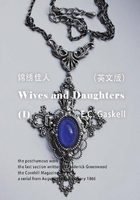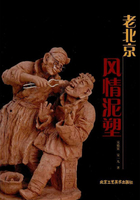My name is Emery Wilson, PhD. I work for The Svennington Laboratory. What we do is locate, isolate and investigate exotic viruses and bacteria. Such as MY-7, a virus which causes night sweats, cramps and loss of memory. A portion of this extends unhappily to loss of identity.
In the unhappy case of Arthur Bland this identity loss grew so severe that he not only forgot who he was but what he was. This resulted in a total lapse of human traits. Mr. Bland became convinced that he had become simian and insisted on living in a tree, sustaining his bodily well-being on a diet of bananas and leaves. This condition persisted until, during sleep one night, he fell from the tree and broke his neck, dying instantly. The autopsy revealed no more than the presence of MY-7 in his system.
But that is not my account so I will not dwell on it. All I intended to transmit was the information regarding my profession. Such as the investigation of such bacteria as X9-1, which caused such an excessive loss of balance that most victims of its invasion kept falling on their heads, which resulted in a noticeable percentage of concussions. But, that too, is a different story albeit a sad one. What I mean to tell you is another one. A grim and dreadful one.
Stanley Barenbaum, M.D. was rotund and worried. The rotund part was easy to see, visible to the eye. The worried part was more difficult. I had to surmise it. I was able to do this. Dr. Barenbaum had the expression of a man married to a sex-obsessed woman who, arriving home early one afternoon, sees his handsome brother-in-law's red BMW convertible parked in the driveway of his home. Definitely apprehensive.
"Good afternoon," he muttered.
I waved him to the chair opposite my desk. He sat down, tentatively, I thought, as though he was prepared to leap to his feet at a moments notice. His smile looked frozen to me.
"What can I do for you?" I asked.
He didn't answer at first but drew in a deep draught of air through his nose. Then he said, "This virus. If that's what it is. We aren't certain what it is. We only know it exists. No, we don't even know that for sure. We only know what we think it is and we're not even certain of that. But we do believe it exists and we're anxious to know-"
At which point he ran out of breath and was compelled to inhale, wheezingly.
"You have a specimen with you?" I asked, speaking quickly lest he interrupt me with another rant.
"We sent it in several days ago," he said, now sounding almost like a rational human being.
"I haven't seen it yet, I'm sorry," I apologized. "I'll get to it as soon as possible. Have any of my associates given your office an analysis yet?"
"No," said Dr. Barenbaum. Whether in irritation or despair-or both-I couldn't tell. Part was certainly despair. "We must ascertain what it is," he said. Definitely despair.
"What is it about this virus-if, indeed, it is a virus-that concerns you so?" I inquired.
He didn't answer. I sensed that he was loathe to do so.
"Doctor?" I said.
I hadn't taken notice of his Adam's apple. I did now as it dipped abruptly and the sound of his nervous swallow was clearly audible. "Please," I said. By now my curiosity was piqued.
"We refer to it as VD-1," he said in a muffled voice.
"I beg your pardon?" I responded; not sure I'd heard him correctly.
"VD-1," he told me again.
"Oh," I hesitated, then added, "Does that-stand for anything?"
"It does," he said. His voice was now thin and strengthless.
"Which is?" I had to prompt him.
He sucked in air.
"Virtual Disappearance," he said.
Dead silence in my office. Was the man serious? Or was I the butt of some inner-office prank? How could I tell?
I decided to pursue the matter. Barenbaum was a doctor wasn't he? He seemed sincere enough. No point in dismissing the situation pro bonum. My mind doesn't work that way.
His rumination changed my mind in the silence.
"I know this sounds improbable," said Dr. Barenbaum. (I chose to leave his title unchallenged for the moment.)
"Let me understand this," I said, "You refer to disappearance. Do you mean that literally?"
"I do," said Barenbaum.
"In what way?" I asked, I winced at the notion. "The dissolving of organs? Partial or total dissolution?"
"No," he said.
"All right," I went on. "What were the symptoms then? Sweats, dizziness, drowsiness, diarrhea, what?"
"No," he said.
"For God's sake, Dr. Barenbaum," I protested, "What were the symptoms?"
"I told you." Now he sounded impatient.
"You said-" I began.
"I said disappearance," he interrupted, "I mean total, absolute, complete disappearance."
"Let me get this straight," I said. "You're saying-!"
"Oh, for heaven's sake!" He was furious now. "Don't you comprehend English? Israel Kenshaw disappeared! Physically! Absolutely! In toto!"
I comprehend English. I could not comprehend what he was talking about.
"How did this occur?" I inquired. Quietly. Devoid of rancor. My way.
"He went in the bathroom," said Dr. Barenbaum. He actually gulped. "And vanished."
"You mean-?" I started.
"I mean he vanished!" raged Dr. Barenbaum. "The bathroom door was opened after a while and he was gone! Disappeared!"
I couldn't accept his account: Not yet. There had to be some logic to it.
"What about the window?" I queried. Surely that was an explanation.
"It was locked," he answered. He was getting tired of speaking to me now. "Anyway, it was too small. Mr. Kenshaw was, to be blunt, obese."
He leaned forward in the chair and spoke slowly and distinctly. For the last time, I sensed. "Mr. Kenshaw-"
"Your patient," I said.
"My patient." His voice was tight, almost threatening. "He went into the bathroom on the evening of the twenty-fifth…"
"The twenty-fifth," I repeated.
"Yes," he said through clenched teeth. "He went in with a smile on his face."
Ah, I thought. A smile. Was that significant? I didn't see how it could be but I was grasping at straws. How could we be talking about a virus now? Or for that matter, a bacteria?
"I didn't hear the rest of that, "I said. I hadn't. "Would you repeat-?"
"I said," he declared, "-that Mr. Kenshaw had entered the bathroom-"
"With a smile on his face," I amended.
"Yes!" he cried, "Which is hardly the point!"
"Which is-?" I probed. I felt a need to challenge his account.
"Which is," he held on. "Mr. Kenshaw went into the bathroom-with a smile on his face-" he added tensely, "He locked the door. His wife heard him lock the door."
"Go on," I said.
He shuddered. With aggravation I believe. "An hour later, his wife, receiving no reply to her questions, had the door unlocked. Mr. Kenshaw was not in the bathroom. The bathroom was empty."
"And-?" I asked.
"And?" he demanded.
I was really grasping at straws by then. "Was there by any chance-" I suggested totally straw grasping now. "-any…well-ashes on the floor?" It was the only thing I could come up with as farfetched as it was. Spontaneous Combustion. I'd read about it. Somewhere.
"What?" Barenbaum snapped.
"No…smell of burning flesh in the air?" I asked.
Teeth gritted again. He shook his head slowly. Very slowly.
"And you-believe that-all this-" I didn't know how else to put it. "Had some connection to the virus? The bacteria? whatever?"
"I do," he said. "What else-?"
"You know, for a fact, that he'd been infected?" I broke in.
"Of course I know! All my colleagues know! The blood test confirmed it!"
"I see," I nodded. Haplessly. "And you don't think-" I broke off. I'd been about to ask him if he thought Mr. Kenshaw's smile had anything to do with-no. That was ridiculous.
"Well, it only remains for us to examine the specimen," I told him. "See if there are any answers there."
"I would hope so," said Barenbaum stiffly.
"One more question," I said. "Did Mr. Kenshaw display any peculiarities of behavior prior to his-?" Disappearance, I thought. I hadn't the heart to say it aloud.
"No, nothing," Barenbaum answered.
"Nothing at all?" I probed. "It might be evidential."
"Nothing." he emphasized. "The usual."
"Such as-?" I re-probed. Wondering, to myself, why I didn't just let go of the whole thing and concentrate on examination of the submitted specimen. Surely-
"His job, his health, his childhood, his car-"
"His childhood," I thought. "Anything there?" I asked.
"No," he said. "Now will you-?"
"Immediately," I cut him off. "We'll start the examination right away."
And start it we did. And discovered nothing pertinent. Unless establishing that it was definitely a bacteria bore any significance. We suspected that before we began the examination.
But VD-1? Not scientifically acceptable a label. How were we supposed to identify it? The Smiling Germ? Suggested one of our jokester assistants. The Vanishing Cream? The Houdini Effecter? Each suggestion was more absurd then the previous one. Accordingly, we merely assigned it the name BU-1. Bacteria Unknown-one.
Only one oddity emerged during the course of our study. One afternoon a thunderstorm caused a twenty minute discontinuation of our electric service. Much to our amazement, the bacteria sample on our electroscope glowed for a number of seconds, then disappeared from view. When the electricity was renewed, the electroscope plate was blank.
By a distressing turn of events, BU-1, as we called it, began to spread in an alarming fashion, very soon taking on the threat of, first, an epidemic, then a pandemic. Newspaper and magazines were inundated with articles about the dire situation, most of them filled with conjecturing-most of it ridiculous-as to the possible meaning of the disappearance aspect.
One particularly mystifying element to the entire enigma was the remarkable fact that many of the BU-1 victims-approximately thirty-five percent did not disappear at all but suffered a few days of elevated temperature and, on occasion, a minor attack of mental disorientation before eliminating the bacteria from their system.
The remaining sixty-five percent vanished without a trace.
Explanations failed to elucidate, in any way, the uncanny vanishments. (An ungrammatical labeling of the vanishings by the press.)
The answer-such as it was-came to my attention, seven weeks from the outset of The Goodbye Plague as it was now called. This in the guise of Colonel Ula Vanderloop. Commandant of The Royal Dutch Retreat Corps. Colonel Vanderloop, in addition to his military status was a well-known medium and faith healer, having achieved his spiritual eminence mainly through his well-known psychic communications with Jack the Ripper who denied all culpability with the White Chapel atrocities, claiming that on all those occasions he was attending Christian Science lectures in Dover.
Herewith, the details of my meeting with said Colonel Vanderloop. take it or leave it.
"Doctor Wilson," he began in a stentorian voice. Actually, he referred to me as "Docta Vilson" but we'll let that go. Any attempt to literalize his speech would be counter-productive.
He introduced himself as per my words, presenting his varied qualifications, both military and spiritual, in a high resonant manner.
I waited for some cessation in his discourse, then asked him, politely of course, the reason for his visit. I wanted to ask why he was intruding on my busy afternoon but, again, politesse prevailed.
At which, the Colonel imparted to me the reason for his visit. An impartation (if there is such a word; if not, there should be) which gave me a literal shock. To be truthful, it jolted me in my chair.
"I have been in contact with Mr. Israel Kenshaw," was what he told me.
"You have-" I muttered incompletely. It was all I could say.
"-been in contact with him, yes," the Colonel completed. "You know about the man?"
My lips stirred without sound. Then I managed, "I do."
"For how long?" he asked.
"Long?" I said. I mumbled. "I never knew the man at all, only about him from Dr. Barenbaum."
"What I mean," continued Vanderloop, "what period of time were you acquainted with this man before he passed?"
"Passed," I said. Sounding like a numbskull kindergartener. I felt like one.
Obviously, the Colonel's regard for me was equally low. "Yes, passes," he said. "Passed on." He waited for some sign of comprehension in my face. Not forthcoming. His porcine features stiffened. "Died," he stated, obviously using a word anathema to him.
My mouth positively fell open. "I didn't know he had," I told him. This was casting an entirely new light on the BU-1 mystery. The first evidence of fatality.
Now Vanderloop's look became one of amusement. "How droll," he said. "Your Mr. Kenshaw was of an equal mind."
"Sir?" I asked.
"He insisted that he didn't know either."
"Know?" I said.
"That he'd passed on, man!" The Colonel cried.
"What did he think happened to him?" I asked. I really wondered.
Vanderloop sighed audibly. I could sense that he was not accustomed to this variety of Q and A exchange. He was the sort of man who was used to holding forth, to explaining measuredly, in a word, pontificating.
No point in my noting the bulk of our lengthy conversation. It went in circles, frustrating both of us.
What finally did become established was that we had no idea whatever about the spiritual status of Israel Kenshaw. Was he a surviving disincarnate communicating with the living? Or was he living himself, intent on explaining what had ensued following his unforeseen disappearance?
According to Kenshaw, he had traveled back in time to the year when he was ten years old, a particularly rewarding time of his life. His father was a forest ranger in Sequoia National Park and Kenshaw had been his dedicated "helper." The home he lived in was forest enclosed. He was an only child. He had never been more content.
Imagine his reaction then when, infected by BU-1, he vanished from his bathroom and found himself returned to that idyllic period of his childhood. Naturally there was the complication of his ten-year-old duplicate and his parents.
Understandable consternation. But these drawbacks seemed of little import to Kenshaw. He seemed overwhelmed with joy, asked to be remembered to Bianca, his wife of nine years and his few friends, extending his wish that they, too, become infected with BU-1 and return to some longed-for time of their lives.
I must add that all this information-coming especially from the lips of Colonel Ulu Vanderloop-took me off balance and made me more than dubious. For instance, if Kenshaw's back in 1956 how in the name of all that's holy, could he be contacting Vanderloop-and, of course, me-in 2011? His explanation that time is flexible failed to convince me.
Still, that it was Kenshaw was undeniable. As were the undeniable identities of so many other BU-1 victims whose account all bore the same points. One-that they were infected. Two-that they had disappeared-once almost fatally, as she was driving to work. Thrice-they had returned in time to happily recalled periods of their lives. Four-that they were very much enjoying their return in time.
In some cases, it was not to childhood. One elderly man "chose" (one assumes that choice was involved in all these peculiar transpositions) to return to the year he was Captain of a Navy Minesweeper in World War Two. Another aging beldame returned to the days when she was a chorus girl in a long-running Broadway Musical. And many more. The effect was state and worldwide. Consider the case of Bjorn Lutefisk who chose to return to his Uncle Olaf's herring factory as the floor manager. Unhappily, the smell reduced Mr. Lutefisk to a gibbering segment of his former self. Consequently, he ended up in an asylum. Uncle Olaf began to drink again since he had to contend with two versions of his nephew.
Strangely enough-or, perhaps understandably-a number of BU-1 victims went nowhere. They suffered their mild temperature elevation for a few days and, on occasion, a limited period of mental disorientation. From this, one is drawn to the conclusion that either the infection was not severe enough, or the victim involved had no particular spot in the past they yearned for.
None of which convinced me especially. Notably, the idea of time being flexible. Perhaps so but I was from Missouri on that point. Still, the evidence was there, irrefutable in every detail.
The ongoing and increasing-enigma was not clarified when some media wag in a National Enquirer type article defined it as the PUZZLE OF BACKTERIA. Ignoring the facts of the "puzzle," he claimed that all its victims went back to a time to a more genial environment. That this was not statistically accurate was shunted aside. So Bacteria Unknown-1 became, permanently labeled as BACKTERIA.
Not being a professional historian, I will make no attempt to enlarge on the subject. Suffice to say that the number of Backteria victims increased in the hundreds then, in a matter of months, to the thousands and, ultimately ten thousands. The increase, in other words, was geometric. This over the scope of every continent and island in the known world, including the Arctic zones. Not that every victim, as indicated, vanished. Many of them did however, a few of them "reporting in"-as one journalist expressed it-"via the medium of mediums."
Why this method was utilized was probably self-evident. There was, simply put, no other means of communication available, as obscure as the method proved to be. There was no other way to let those "left behind" know where their vanishing relatives or friends had gone. Especially perplexed by the process-although perfectly willing to "cash in" on it, was the multiple array of mediums throughout the world. Vanderloop alone became so well-to-do that he made a formal bid to purchase Holland in whole or in parts. I will not enumerate the many other mediums who acquired wealth through their intercessions. Most of them never really knew whether their "communications" were alive or dead. Not that it mattered to them.
The most uniquely peculiar occurrence in this Panoply of Plaguaries, as they came to be called, was the incident of Dimitri R. Mupphinsky of Vladivostok. (Middle name Raga) His medium (name unintelligible) reported that Comrade Mupphinsky vanished from his place of business at the end of March. When he communicated with his Uncle Vanya in June, it was to state that he had gone back to his fathers' farm only to discover that his memory had erred and that life there was intolerable. Which established the conundrum that memory was, perhaps, fragile and not essentially reliable. However, if this "Backfire," as it came to be known, was in effect in other plague victims, I never found out.
My ill-advised participation in the Backteria Mystery took place approximately thirteen months following inception. By then, the disease (we felt obliged to term it so) was widespread. Every country on the globe suffered its share of the bizarre affliction. The Svennington Laboratory was deluged with involvement. That we had no more explanation for the dilemma than any other source didn't seem to matter. We were the first to be engaged in the "Vanishing Chaos" as it also came to be called and that was enough.
My own enmeshment was typical. My marriage was faltering. I felt scant attachment to Brenda and her regard for me was similar. The two girls were on their own, both married, with girls of their own. Work at the lab was increasingly unrewarding-especially as any attempt to achieve technological BU-1 explanation was invalid.
It was at that frustrating point that I made my decision.
It was simple to acquire a sample of BU-1. I had made up my mind not to take the haphazard course of seeing if I could "catch" the Backteria since it was easily available to me.
The main problem was to ascertain what period of my life I most aspired to. It never even occurred to me that I might be one of those infected victims who would not disappear but only be exposed to a few days of elevated temperature and perhaps, a brief period of mental disorientation. Far from it. I went all the way.
There was not a plentiful collection of choices to be made. My childhood was a possibility. Mother was a good-natured soul. Father drank some, but by and large was a passable sire. But nothing outstanding. My teenage years were unacceptable. An unhappy array of failed female liaisons and repetitive skin disorders.
My best bet, I decided at length, was the year 1950, Webster College, Miriam Gilford and, vividly in recollection, Professor Andrew Vaughn and Egyptology. With what graphic verbiage that man described the search for various Royal tombs such as Tutankhamen's.
Which is what brought me to this unpleasant situation, you see. How could I have known that my subconscious was so imbued with Andrew Vaughn's coercive descriptions that they filled my mind to the spilling point. For here I am in Egypt in the year 1922. No way of letting Brenda know my plight. Vanderloop is beyond my reach; that is for certain.
So who am I residing with? Mr. Howard Carter, as cranky and demanding a man as I have ever run across. Each day in his tomb-he will permit no credit otherwise-is a lasting travail. I made the blunder of commenting on his feeling for Lord Carnavon's daughter-which comment displeased him greatly. The fact that I know he never will consummate his lingering desire for her only makes my state of mind more untenable. My only consolation is the fact that I will not be confronted by my younger self. But damn it's hot! I mean hot!















